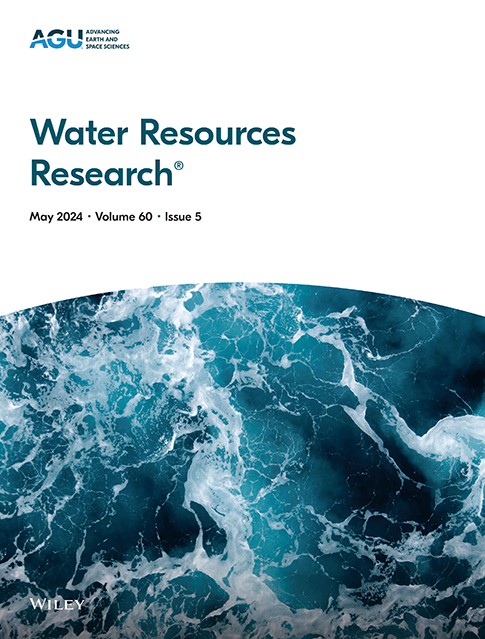Deep Learning Identification of the Governing Equation for Water Flow in Heterogeneous Soils From Data
IF 4.6
1区 地球科学
Q2 ENVIRONMENTAL SCIENCES
引用次数: 0
Abstract
Despite the remarkable advances in using deep learning for describing and predicting soil water flow, these models inherently cannot deepen our understanding of its underlying physical mechanisms as they are black-box approaches. To address this issue, a novel data-driven equation discovery approach has recently been widely used to facilitate scientific discovery in geoscience disciplines, including soil hydrology. However, due to the inherent complexity of soils, current data-driven discovery approaches cannot deal with heterogeneous soil scenarios. In this study, we present a new group sparse regression theory and a deep learning framework to extend previous studies to be able to identify the governing equations for soil water flow in heterogeneous soils from observational data. Specifically, we focus on discovering equations from only time series of volumetric soil water content data, which are easily accessible. To accommodate it, the underlying assumption of the generalized soil-water content-based governing equation is utilized, and a coarse-grained group sparsity theory is developed. Furthermore, we incorporate the proposed group sparse regression into a new deep-learning framework: Extended-DeepGS (Extended Deep-learning-based Group Sparsity). Through deep-learning identification, it realizes simultaneous reconstructions of soil moisture dynamics and governing equations. A series of comprehensive numerical experiments are designed and conducted to test the performance of the theory and framework, and the results show its robustness. We also summarize the potential effects of soil heterogeneity on the discovery of equations. Finally, we discuss the limitations of the approach, which may inform future developments.求助全文
约1分钟内获得全文
求助全文
来源期刊

Water Resources Research
环境科学-湖沼学
CiteScore
8.80
自引率
13.00%
发文量
599
审稿时长
3.5 months
期刊介绍:
Water Resources Research (WRR) is an interdisciplinary journal that focuses on hydrology and water resources. It publishes original research in the natural and social sciences of water. It emphasizes the role of water in the Earth system, including physical, chemical, biological, and ecological processes in water resources research and management, including social, policy, and public health implications. It encompasses observational, experimental, theoretical, analytical, numerical, and data-driven approaches that advance the science of water and its management. Submissions are evaluated for their novelty, accuracy, significance, and broader implications of the findings.
 求助内容:
求助内容: 应助结果提醒方式:
应助结果提醒方式:


